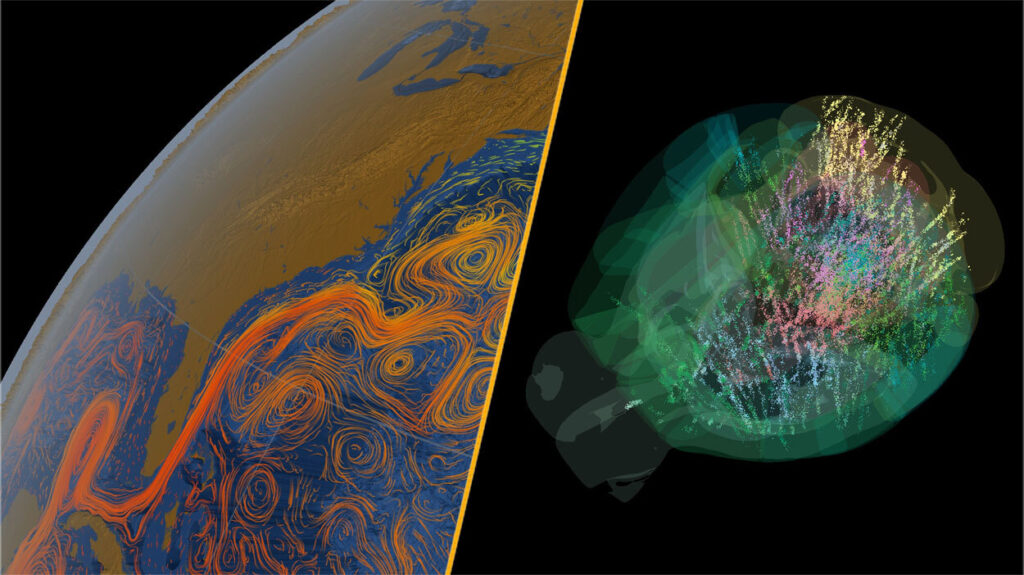The watery part of the world dominated our science news coverage this week, beginning with the alarming prediction that a key Atlantic current, the Atlantic Meridional Overturning Circulation (AMOC), which includes the Gulf Stream, could begin its irreversible collapse in decades.
That’s according to a new landmark study, which combined the predictions of 25 climate models to arrive at an “optimistic” prediction (under a moderate emissions scenario) that the current will begin to shut down due to climate change sometime in the 2060s. Given the current’s vital role in regulating global climates, scientists have described the study as a “serious climate wake-up call.”
Elsewhere, the signs of our warming world can be seen in the invasion of Antarctic icebergs around the South Atlantic Ocean’s South Georgia Island. There, the former record-holder for the largest iceberg in the world, A23a, is undergoing a dramatic breakup. Meanwhile, deep beneath the Pacific Ocean, a team of scientists has discovered a giant hydrothermal system that could hold clues to the origins of life on Earth.
Mouse brain scans rewrite the textbook
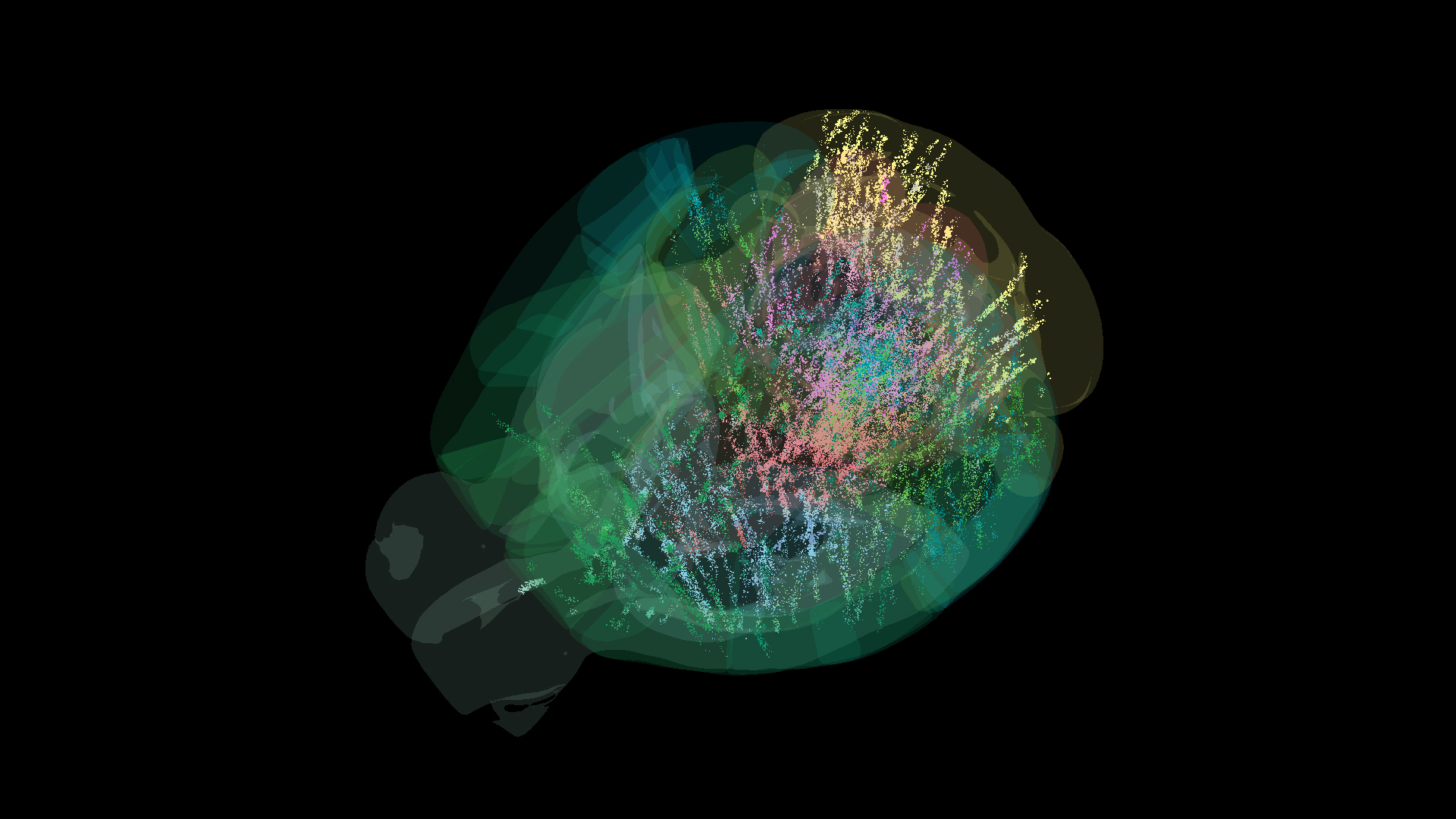
It’s not often that a single piece of research comes along with the potential to rewrite everything that came before. Yet a massive collaboration of neuroscientists may have done just that with two new studies that mapped more than 600,000 individual mouse brain cells — or 95% of the rodents’ brains.
The scientists hope the mammoth effort will help them study what parts of the mammalian brain are responsible for making decisions. In the past, scientists assumed that brain activity moves in a linear path, from visual recognition of a stimulus to regions responsible for abstract thinking, mixed with sprinklings from the memory regions to draw from experience.
But the new research found that significantly more of the mice’s brains participated in this process, with decisions beginning to coalesce far earlier than expected. So far, the findings are only correlational, meaning the scientists still don’t know whether all the regions are contributing, but they plan to attack this question as the next step of their work.
Discover more health news
— Diagnostic dilemma: Woman’s severe knee pain reveals ‘golden threads’ in her joints
— Scraps of ancient viruses make up 40% of our genome. They could trigger brain degeneration.
— We finally have an idea of how the lifetime supply of eggs develops in primates
Life’s Little Mysteries
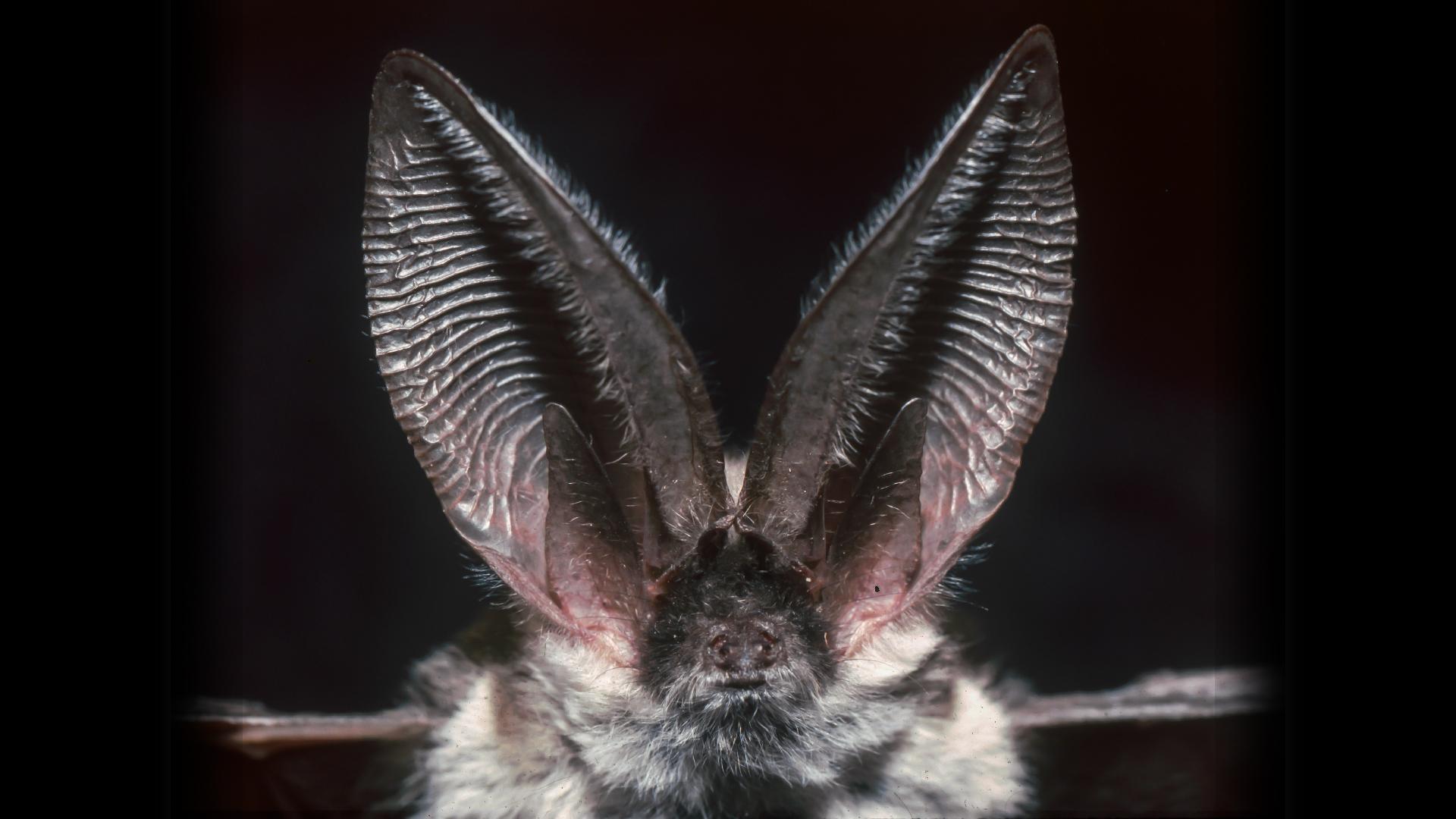
Think of the animal with the world’s sharpest ears and your mind might flutter onto bats. Take it a step further and one of their prey — the greater wax moth — could also be a contender, as the moths’ ears are adapted to anticipate the ultrasonic chirps of their swooping hunters.
But just like any sense honed by natural selection, what qualifies as the best hearing is in the ear of the listener. Here are our major contenders for the animal world’s best hearers.
— If you enjoyed this, sign up for our Life’s Little Mysteries newsletter
Chatbot suicide prevention doubts

A new study has raised doubts about the suicide prevention safeguards of three popular artificial intelligence chatbots (OpenAI’s ChatGPT, Google’s Gemini and Anthropic’s Claude) finding that they were inconsistent in their replies to an extent that it could lead to serious harm.
The news came on the same day that the parents of 16-year-old Adam Raine filed a lawsuit against OpenAI, claiming that the company’s chatbot had coached the California boy into taking his life earlier this year.
The new study found that ChatGPT offered direct answers to high-risk questions 78% of the time — some of which Live Science independently found the chatbot replied directly to.
All of this raises pressing questions about how a growing number of people, many of them younger, increasingly rely on these bots for advice on their mental health and personal lives.
Discover more technology news
— There are 32 different ways AI can go rogue, scientists say — from hallucinating answers to a complete misalignment with humanity
— AI can’t solve these puzzles that take humans only seconds
— Scientists taught an AI-powered ‘robot dog’ how to play badminton against humans — and it’s actually really good
Also in science news this week
— Dozens of mysterious blobs discovered inside Mars may be the remnants of ‘failed planets’
— How the racist study of skulls gripped Victorian Britain’s scientists
— Newly discovered bus-size asteroid will zoom close past Earth today — and will not return for exactly 100 years
Science Spotlight
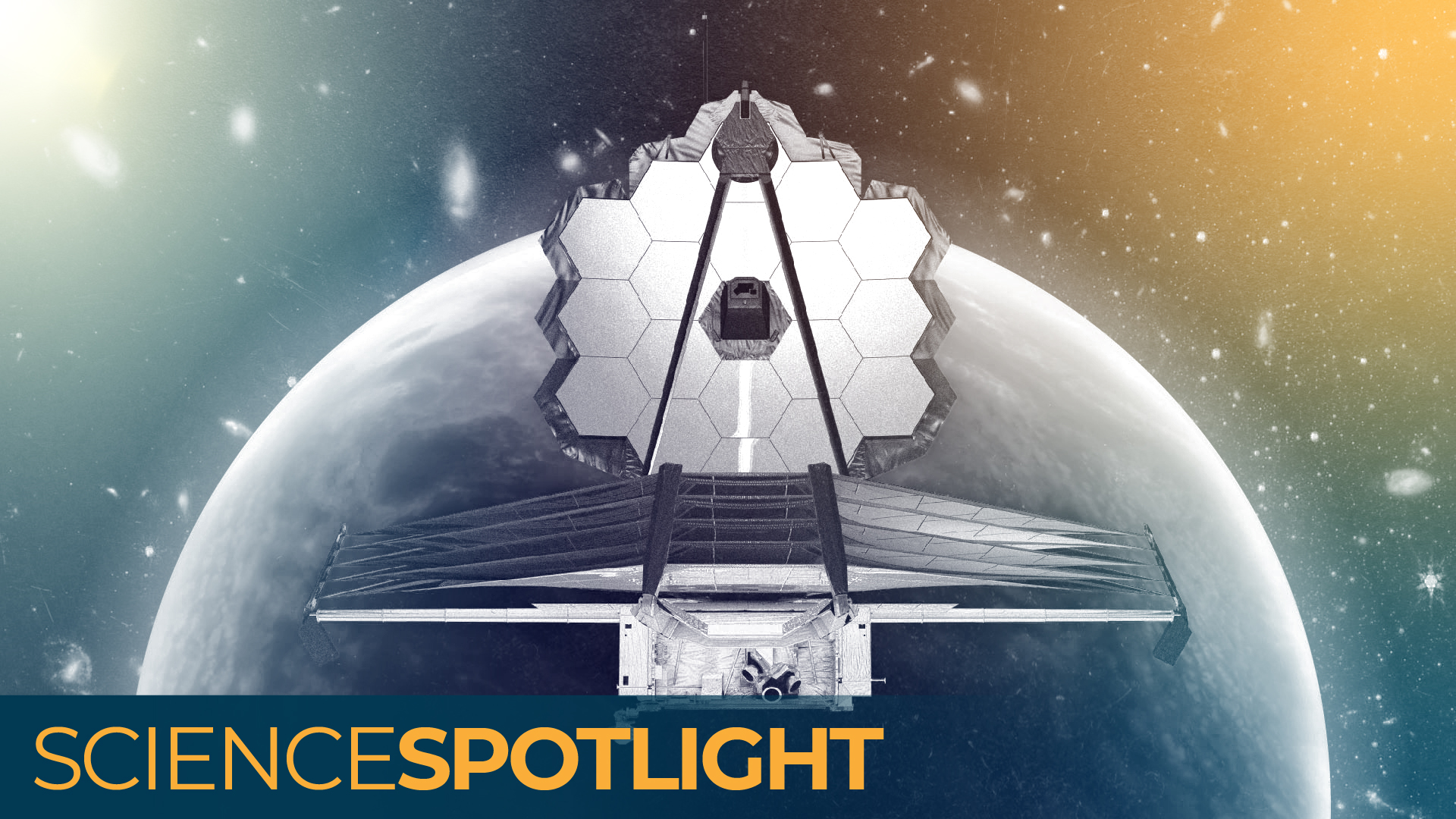
A $10 billion floating telescope, training its state-of-the-art lens at distant worlds to search for alien life: Humanity’s search for aliens has come a long way since early suggestions that we simply light some big fires and wait for the spaceships to arrive, but can the James Webb Space Telescope really find what we’re looking for?
In this week’s science spotlight, we dig into the telescope’s search for signs of habitable worlds beyond our solar system, including the scientific debate engulfing the 120 light-year distant K2-18b. The one thing scientists can agree on is that the planet likely smells of sweet cabbage, but whether its pungent gases are the byproduct of biological processes or not remains highly contested.
Something for the weekend
If you’re looking for something to do over the weekend, here are some of the best polls, skywatching guides and crosswords published this week.
— Live Science crossword puzzle #8: Lowest possible temperature in the universe — 3 down [Crossword]
— Do you think we should stop the progress of AI before it becomes a threat to our species? [Poll]
— Who will see the ‘blood moon’ total lunar eclipse this weekend? [Skywatching]
Science in pictures
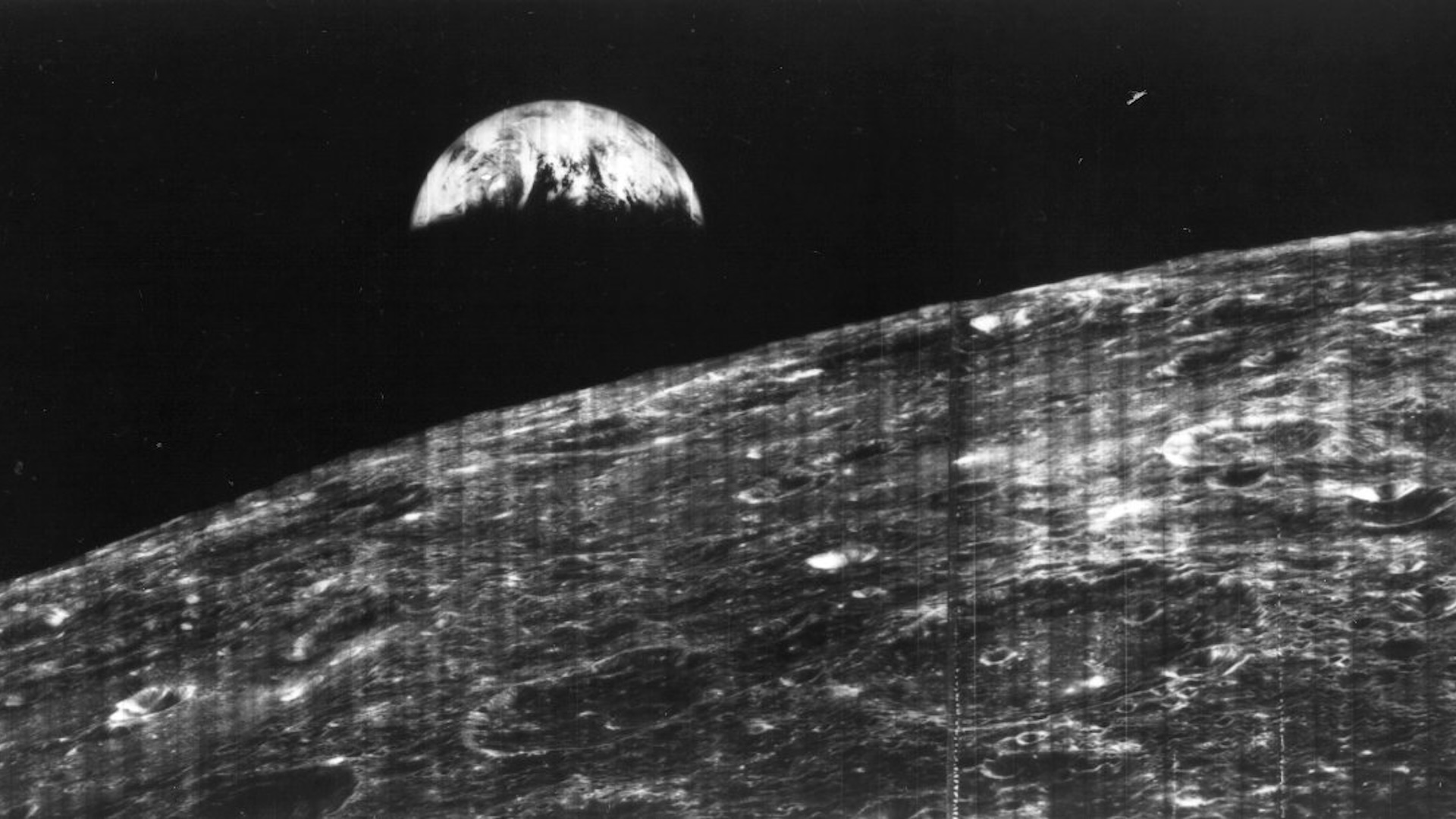
This grainy, black-and-white image snapped by NASA’s Lunar Orbiter 1 is the first ever photo of our planet snapped from the moon. Rising above the lunar horizon with the South Pole cloaked in shadow, the photo is hardly the most impressive one humanity has taken of our world from the moon’s surface. But it was a landmark first and happened entirely by accident, according to NASA.
Want more science news? Follow our Live Science WhatsApp Channel for the latest discoveries as they happen. It’s the best way to get our expert reporting on the go, but if you don’t use WhatsApp we’re also on Facebook, X (formerly Twitter), Flipboard, Instagram, TikTok, Bluesky and LinkedIn.
